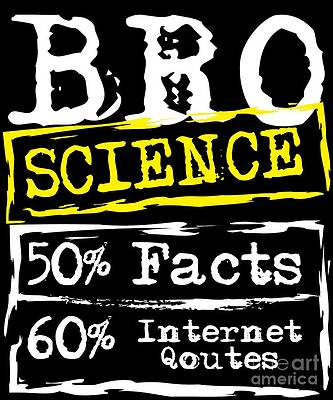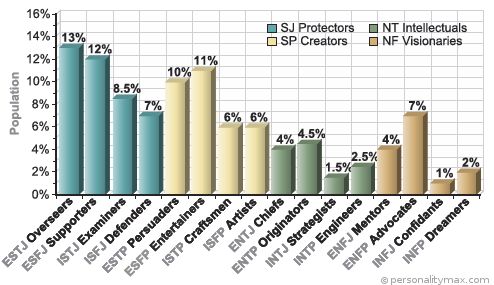In order to win the game, you must first survive in the game.
The modern workplace involves a series of games to be played, ladders to be climbed (promotions) and snakes to be avoided.
The Workplace is where we (people interested in financial freedom) get our start. It’s where we earn, where we progress and where we hope one day to graduate from.
Unfortunately, the workplace is also the source of much pain, confusion and suffering. Much of this is unnecessary.
The Good News is that much of the confusion and suffering can be mitigated by understanding what is really going on in The Workplace.
I was recently doing some career coaching: helping a (highly intelligent and competent) guy navigate the workplace as an INTJ.
The funny thing is that I knew he was an INTJ before he told me.
Not only do I recognise patterns in people from my coaching, I also test as INTJ myself.
INTJ stands for introverted, intuition, thinking, and judging. This is one of the 16 personality types used in the Myers-Briggs personality test.
Being introverted means that INTJs are often drained by social activities. They make sense of experiences based on intuition. INTJs value thinking over feeling and engage in critical thinking or judging rather than just feeling the feelz.
INTJs are sometimes referred to as chess players or strategists:
INTJ’s are one of the rarer personality types and so as an INTJ it is natural to feel like you are always a minority.
INTJ’s excel in effectiveness. They are highly competent in forward planning and also in delivery, execution and follow through.
These are good things; highly desirable traits. But every personality trait brings with it a mix of pros and cons depending on the context.
The Achilles Heel of INTJ’s is that they often struggle to understand how different and emotional other people are. Thus they often fail to “get” office politics. And this can be their downfall.
Just in case you can’t see the financial problem here…allow me to be clear: all other things being equal INTROVERTS EARN LESS MONEY.

This is why “Just be yourself” might be the worst career advice ever. What if you are not naturally good with people?
Dealing with other people is a learnable skill…diplomacy is a learnable skill…just like pretty much everything else.
But you have to put in the time and the practice to learn the skills of a diplomat. It makes no sense to penny-pinch on your career development: that is fixed mindset thinking (as opposed to growth mindset thinking).
As a side-note, INTJs often struggle in romantic relationships and struggle to fully understand the point of view of the other sex.
Many arguments about money (spending versus investing) between husband and wife are driven by a failure to understand the perspective of the other person. As someone smart once said: seek first to understand, then to be understood.
These personality labels are obviously simplifications but hopefully you get the gist of it.
The Map is not The Territory and no test can accurately cover all parts of our personality. But the Myers Briggs categories tell us something useful about the differing psychologies of different people.
The world can be a confusing place if you haven’t figured out your personality type and how much you differ from all the weird and wonderful people around you.
The First Law of Workplace Thermodynamics stems from the fact that people have different personality types and often fail to understand the other person’s point of view.
The First Law of Workplace Thermodynamics is as follows:
Conflict is inevitable in the workplace.
This is Science. Not just any Science…but Bro-Science…which is the best sort of Science.

I still remember the lightbulb moment when I realised that, working in corporate finance where there are 2 sides to an M&A transaction…well there are ALWAYS going to be conflicts of interest.
I once worked on a dispute resolution engagement where there was a multi-million dollar valuation dispute between two big corporations and where my firm was acting as independent binding expert.
It was my job to draft the engagement letter between the 2 parties in dispute who were agreeing to instruct us. Agreeing this took 9 months of back and forth.
I still remember the day when I (a meek and mild English accountant) phoned the Big Bad American in-house counsel of one of the big corporates to suggest a compromise form of words that might be acceptable to both sides.
He shouted down the phone at me, pausing between each word for dramatic effect: “NO-FUCKING-WAY…OVER-MY-DEAD-BODY!!!”
A month later, he conceded the point and signed the letter.
This was strange as I noticed that he was still very much alive. I thought about reminding him of his previous position, but decided that it was more diplomatic to keep quiet.
I realised relatively early on that conflict was inevitable in the workplace.
As time passed, I gained more experience and I observed that the dynamics of conflict varied up and down The Status Pyramid. In the workplace game of Snakes and Ladders, this is the promotion ladder:
I started on the princely salary of £12,500, working for The World’s Leading Accountancy firm. My early duties included photocopying, bag carrying and generally being a goon, side-kick and office junior.
Being a genius, I soon figured out The Second Law of Workplace Thermodynamics:
Shit Flows Downhill
I observed that whilst we were all equal, some employees were more equal than others.
I noticed that it was easier (and safer) to disrespect the office junior (me) than it was to challenge the senior partner or a CEO.
As a McKinsey consulting partner once told me: in the event of a difference of opinion, the better paid judgement wins.
I found out the hard way that big organisations often felt confusing, lonely and sometimes even brutal places to be.
There was the bureaucracy, the office politics, the games that people play, the feuds, the dramas, the endless restructurings, the sales targets, the administration, the corporate propaganda.
The funny thing was that I worked in some of the <best> workplaces in London.
For the most part, I worked with other people that were highly focussed on minimising bureaucracy and maximising value. We were nearly always pulling in the same direction. But even then there were plenty of conflicts and tensions.
Since then I am pretty sure that things in the workplace haven’t gotten any better. I know this because my coaching clients keep me up to date with the latest horrors developments.
From 2016, the whole soshul justice thing took off which made things even more confusing.
As Vivek Ramaswamy explains, a Faustian bargain was entered into between The Left and The Right.
Big business went woke. In return for left wing politicians quietly dropping their communist dreams of wealth redistribution, state ownership and nationalisation, the corporate world embraced “progressive” values.
Both sides got something from this deal. The capitalists on The Right got to keep capitalism and keep most of their money. They won the Economic Game.
The socialists / progressives on The Left won the Cultural Game. They got their rainbow lanyards, their International Days of Awareness and they got to preach…and they <love> that shit.
Western multinationals rationally chose to sell to the widest audience. Racism is bad for business. It makes no sense to exclude minorities from your adverts, from your customer base or the talent pool you hire from. From this perspective, the Diversity, Equity and Inclusion bandwagon made sense.
But it also created a new layer of bureaucracy and administration. Plus greatly increased scope for victim mindsets, micro-grievances and power games in the workplace.
Language and culture are in a continual state of flux.
In the new corporate culture, old fashioned hierarchy was played down and inclusivity was played up.
360 degree feedback became a thing. You had to get feedback from junior staff as well as from your boss and other more senior managers.
This gave more power to the younger, more junior employees who could now say that they felt unsafe when some oppressive Gen Xer was suggesting that they might like to come into the office and speak to some people in real life.
Middle managers became scared of the younger employees and their 20 year old girl opinions.
This new layer of workplace complexity led my formulating The Third Law of Workplace Dynamics:
Shit Also Flows Uphill.
The hapless middle-manager became a punch-bag. Middle managers now had to operate as a 2-way buffer zone between the demanding bosses and investors at the top of the pyramid and the demanding employees at the bottom of the pyramid.
The workplace got more complex, it got more global, more multi-cultural, it got more remote (and impersonal) and it got more difficult to navigate.
The more complex the environment, the more likely that conflict becomes.
Thus the skills of The Diplomat became ever-more valuable.
How to escape a job you don’t like
I started out doing financial coaching: helping people on how to get to financial independence, the point where work is optional.
I soon realised that a lot of people pursuing FIRE (financial independence, retire early) have more of a job problem or career problem than they do a money problem.
At the risk of stating the obvious, if the goal is to escape a job you hate, then changing jobs (or changing career) is a lot quicker than getting to financial freedom.
Love to everyone
Barney
If you’d like to discuss career coaching, you can set up an introductory call with me here.





